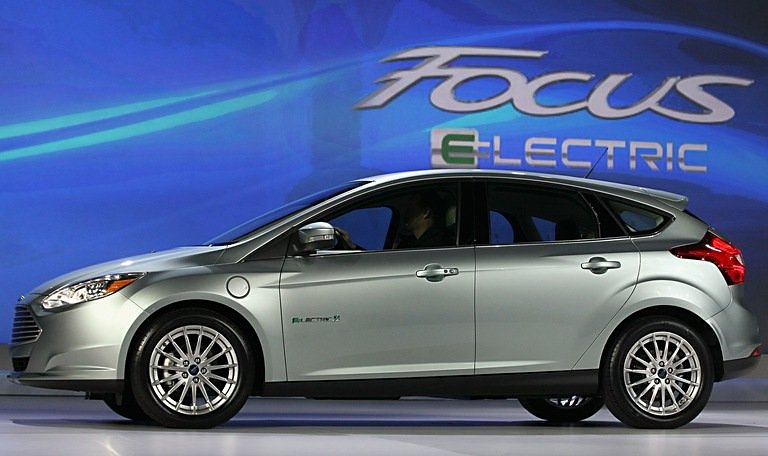Increased investment in electric cars
January 16, 2018 | Expert Insights

The Chairman of Ford Motor Company, Bill Ford, has announced that the organization will be significantly increasing its planned investments in electric vehicles to $11 billion by 2022.
He has also stated that there will be 40 hybrid and fully electric vehicles in the company’s model lineup. According a report in Reuters, the investment made on electric vehicles by global companies now amounts to $90 billion overall. It is evident that Ford is competing with General Motors which has seen its stock prices rise thanks to its commitment in electrification and autonomy.
Background
The first practical production of an electric car was built in the UK in 1884 by Thomas Parker. However, electric cars were replaced in the 20th century by gasoline vehicles, which were much cheaper in comparison. It was only after 2008, when the market for electric vehicles started growing. This was due to concerns over growing oil prices and the environment.
In countries like the US, the sale of electric cars has significantly increased. In 2016, the sale of electric vehicles in the US rose by 37%. California, in particular, was the biggest market for electric cars. Globally, the sales of electric vehicles have more than doubled since 2014.
According to the International Energy Agency, in 2015, petrol and diesel cars accounted for 26% of the global oil demand. This was more than the demand from the aviation, shipping and petrochemicals industry.
In July 2017, the governments of France and UK announced that by 2040, petrol and diesel cars would be banned. UK, especially, has been grappling with increased levels of pollution. The Indian government has also announced that by 2030, every vehicle will be powered by electricity.
In 2017, Volvo became the first car manufacturer to announce that from 2019, every new car in its range will have an electric power train. Other companies like Tesla too have followed suit and have begun making significant investments in manufacturing electric cars.
Tesla, the California-based maker of electric cars, has said it plans to raise $1.5 billion to fund the production of its latest vehicle. GM too is expanding its electric aspirations with the launch of a new EV that will hit the Chinese markets. The automaker's Chinese Baojun brand has come out with its first mass-market electric car, which will only cost $5,300.
The Ford Motor Company is an American multinational automaker headquartered in Dearborn, Michigan, a suburb of Detroit. It was founded by Henry Ford and incorporated on June 16, 1903.
Analysis
Ford Motor Company will be significantly increasing its planned investments in electric vehicles to $11 billion by 2022. The Chairman of Ford Motor Company, Bill Ford has also announced that the company will boast 40 hybrid and fully electric vehicles in the company’s model lineup.
Bill Ford stated that by 2022, the firm would offer 16 fully electric vehicles and 24 plug-in hybrids.
According a report in Reuters, the investment made on electric vehicles by global companies now amounts to $90 billion overall. Mr Ford told reporters: "We're all in on this and we're taking our mainstream vehicles, our most iconic vehicles, and we're electrifying them. If we want to be successful with electrification, we have to do it with vehicles that are already popular."
Ford's engineering, research and development expenses for 2016, the last full year available, were $7.3 billion, up from $6.7 billion in 2015. Ford is following a pattern set by companies worldwide. Volkswagen said in November it would spend $40 billion on electric cars, autonomous driving and new mobility services by the end of 2022.
“Tesla faces real competition,” said Mike Jackson, chief executive of AutoNation Inc, the largest U.S. auto retailing chain. By 2030, Jackson said he expects electric vehicles could account for 15-20 percent of New vehicle sales in the United States. According a report in Reuters, the investment made on electric vehicles by global companies now amounts to $90 billion overall.
Stephanie Brinley, a senior automotive analyst at IHS Markit, said, “Part of it is about tougher regulation but also the expectation that electric vehicles will support autonomous driving. The big question is how quickly consumers will adapt, as electric is only 1% of the market right now. Changing that will take better infrastructure on our roads, but also having more electric vehicles available.”
General Motors plans to roll out at least 20 new electric cars by 2023 that brings battery power driving to the mainstream. It also unveiled a concept of autonomous cars without steering, or pedals.
Assessment
Our assessment is that demand for electric cars is linked to the rising levels of air pollution globally. A study published in 2017 revealed that pollution is the cause of 9 million deaths across the world annually. Increased number of diesel and petrol cars could add this to problem and make cities and town inhabitable as a result. The economic compulsion of large automobile manufacturers in not being able to adhere strict quality of diesel and petrol emission has also caused further problems. One of the bigger challenges for electric cars would be with regard to their energy storage capacity. We believe that this handicap would be addressed once the industry commits to a large R&D programme.








Comments